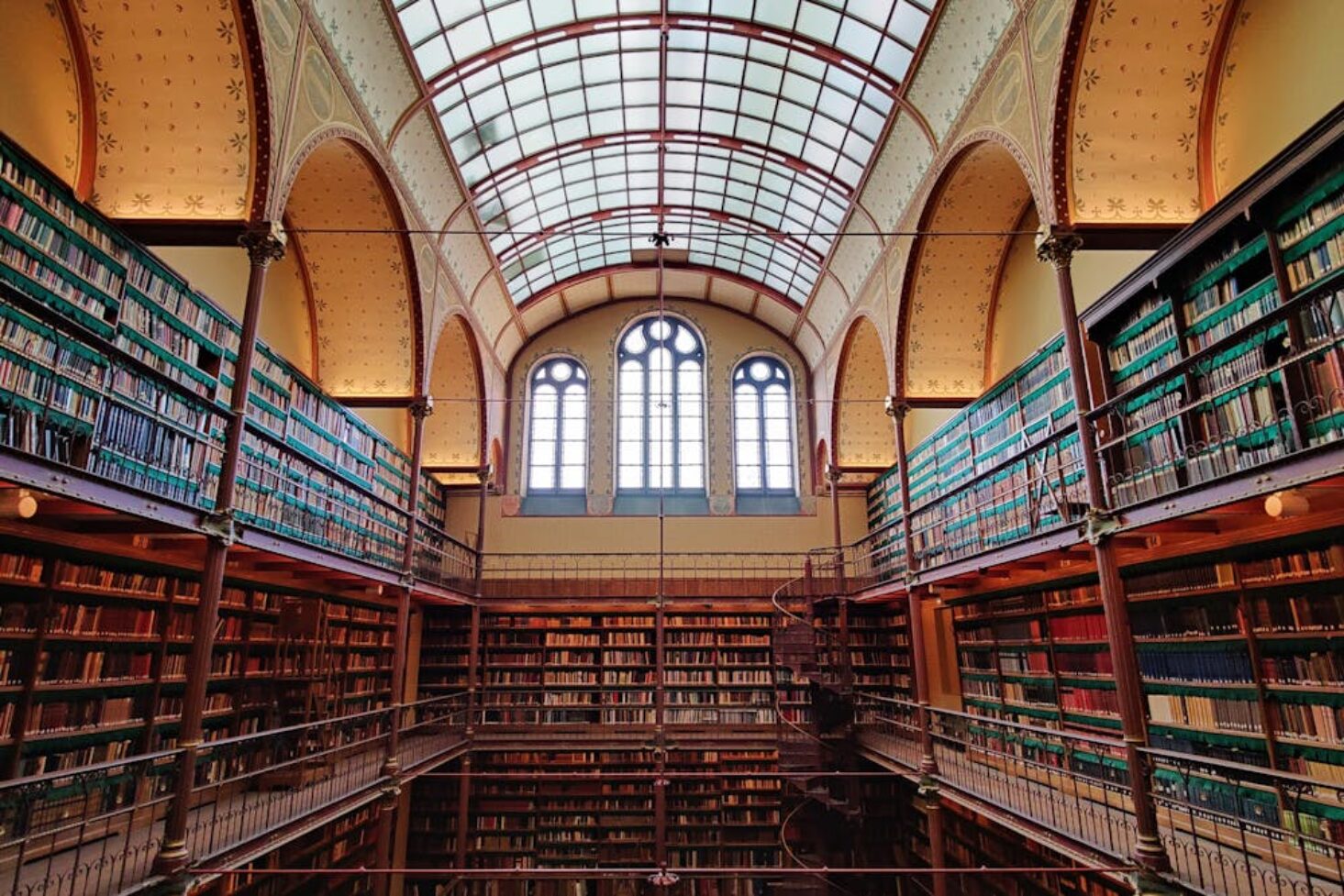
Oxford Literary History: Exploring the Legacy of Famous Writers and Landmarks
Embarking on a journey through Oxford’s literary history is akin to stepping into a realm where words weave the very fabric of existence. With each cobblestone pathway and towering spire, the city whispers tales of renowned writers who once roamed its streets, leaving an indelible mark on the literary landscape.
Oxford literary history delved into the intertwined narratives of famous writers and iconic landmarks, unravelling the intricate tapestry of inspiration and creativity that has flourished within these historic walls.
Oxford, often hailed as the “City of Dreaming Spires,” boasts a literary pedigree that spans centuries. From the medieval charm of its colleges to the bustling energy of its modern streets, every corner of this city resonates with the echoes of literary genius. As we traverse through its hallowed halls and verdant gardens, we encounter the footsteps of literary giants such as J.R.R. Tolkien, C.S. Lewis, and Virginia Woolf, whose works continue to captivate readers around the globe.
But Oxford’s allure extends beyond its esteemed writers; its landmarks serve as silent witnesses to centuries of literary endeavor. From the iconic Bodleian Library, a bastion of knowledge and learning, to the tranquil banks of the River Cherwell, where scholars once sought solace in contemplation, each landmark holds a story waiting to be told.
Join us on a journey through Oxford’s literary history as we uncover the legacy of famous writers and landmarks, tracing the threads that bind literature, history, and imagination in this enchanting city.
Famous Authors of Oxford
Explore the captivating world of famous authors in Oxford, where literary history comes alive. From the immortal words of William Shakespeare to the enchanting realms of J.R.R. Tolkien, C.S. Lewis, and Lewis Carroll, this section will take you on an enthralling journey through the literary landscapes crafted by these literary giants.
Get ready to be inspired, transported, and captivated by the wordsmiths who have left an indelible mark on Oxford’s rich literary heritage.
William Shakespeare
William Shakespeare, widely regarded as one of the greatest playwrights in history, is an integral part of Oxford’s literary heritage. His works, including Romeo and Juliet, Hamlet, and Macbeth, have had a profound impact on literature and continue to be studied and performed worldwide.
William Shakespeare was born on April 26, 1564, and passed away on April 23, 1616. He is renowned for his notable works such as “Romeo and Juliet,” “Hamlet,” and “Macbeth.” Shakespeare’s connection to Oxford encompasses performances of his plays at the iconic Bodleian Library and associations with Christ Church College.
William Shakespeare’s legacy in Oxford is celebrated through various landmarks and events, perpetuating his influence on literature and culture. To delve deeper into the life and works of William Shakespeare, visiting these locations would be highly recommended.
J.R.R. Tolkien
J.R.R. Tolkien, the renowned author of “The Lord of the Rings“ trilogy, is one of the famous authors associated with Oxford’s literary history. J.R.R. Tolkien was a professor at Oxford University, where he developed his passion for languages and mythology. During his time at Oxford, J.R.R. Tolkien greatly influenced his writing, and many of the places in Oxford are believed to have inspired the setting of Middle-earth. One of the key landmarks associated with J.R.R. Tolkien in Oxford is the Bodleian Library, where he studied and conducted research. J.R.R. Tolkien’s presence in Oxford continues to be celebrated through various literary events and societies dedicated to his works.
C.S. Lewis
C.S. Lewis, born in Belfast, Ireland in 1898, is a renowned author known for his contributions to literature and the arts. He is most famous for his beloved series, “The Chronicles of Narnia,” which has captivated readers of all ages.
In addition to his fantasy novels, Lewis also wrote extensively on Christianity and spirituality, becoming a respected theologian. His works continue to inspire and entertain millions around the world. C.S. Lewis‘s impact on literature and culture cannot be overstated, and his legacy as a talented writer and deep thinker lives on today.
Lewis Carroll

Lewis Carroll, born as Charles Lutwidge Dodgson, was an English author best known for his children’s book “Alice’s Adventures in Wonderland.” Carroll’s whimsical and imaginative storytelling captivated readers of all ages.
He was also a mathematician, logician, and photographer. Carroll’s unique writing style and nonsensical wordplay continue to inspire generations of readers. His work has had a significant impact on children’s literature and popular culture, with adaptations and references in various forms of media.
Lewis Carroll’s creativity and literary contributions make him a prominent figure in Oxford’s rich literary history.
Landmarks of Oxford’s Literary History
Discover the hidden treasures that weave Oxford’s literary history as we embark on a journey through its remarkable landmarks. From the prestigious Bodleian Library to the iconic Christ Church College, we’ll uncover the captivating stories and legends that permeate these hallowed grounds.
Join us at The Eagle and Child Pub, where Tolkien and Lewis found inspiration, and venture into The Story Museum, where childhood tales come alive. Let’s not forget the awe-inspiring Radcliffe Camera, a beacon of knowledge and architectural grandeur. Get ready to be enchanted by the landmarks that define Oxford’s literary heritage.
Bodleian Library
The Bodleian Library is a significant landmark in Oxford’s literary history. It is one of the oldest libraries in Europe and houses a vast collection of books, manuscripts, and other valuable literary artifacts. The library was founded in 1602 and has since become a symbol of Oxford’s intellectual legacy.
The Bodleian Library has been a source of inspiration for countless authors and scholars throughout the centuries. It continues to play a vital role in research and education, providing access to a rich literary heritage. If you visit Oxford, make sure to explore the Bodleian Library and immerse yourself in its wealth of knowledge.
Christ Church College
Christ Church College is an iconic landmark in Oxford’s literary history. It has inspired numerous authors and served as a setting in literature, including Lewis Carroll’s “Alice’s Adventures in Wonderland.” The college’s magnificent architecture, such as the Great Hall and Tom Tower, adds to its charm.
Christ Church College is also renowned for its prestigious alumni, including J.R.R. Tolkien and C.S. Lewis, who drew inspiration from the college for their famous works. Fun fact: The staircase leading up to the Great Hall was used as the inspiration for the moving staircases in the Harry Potter series.
The Eagle and Child Pub
The Eagle and Child Pub holds a significant place in the literary history of Oxford.
- Historical Significance: The Eagle and Child Pub was a regular meeting spot for the informal literary group known as the Inklings, which included famous authors like J.R.R. Tolkien and C.S. Lewis.
- Inspiration: The Inklings would gather at the Eagle and Child Pub to discuss and critique each other’s work, providing inspiration for their renowned literary creations.
- Atmosphere: The pub’s cozy interior, with its wooden beams and warm fireplace, continues to evoke the ambiance and creative energy that once permeated the place.
- Authenticity: Visitors can enjoy a pint of beer or a traditional English meal while taking in the literary history of The Eagle and Child Pub and imagining the conversations that took place within these walls.
- Pro-tip: To fully immerse yourself in the literary experience, grab a table by the fireplace at The Eagle and Child Pub and indulge in a pint of beer or a cup of tea while immersing yourself in the rich history of this iconic pub.
The Story Museum
The Story Museum in Oxford is a must-visit for literature enthusiasts. Take a journey through the magical world of stories and storytelling. Here are some highlights of The Story Museum experience:
- Interactive exhibits that bring famous stories to life.
- Workshops and events for children and adults to inspire creativity.
- A collection of rare books and manuscripts for literary enthusiasts.
- An immersive experience where visitors can step into their favorite story worlds.
- A cafe to relax and reflect on the power of storytelling.
Visit The Story Museum and immerse yourself in the enchanting world of stories!
Radcliffe Camera
The Radcliffe Camera is a prominent landmark of Oxford’s literary history. It is a stunning circular building located in the heart of Oxford, England. Built in the 18th century, it serves as the reading rooms for the Bodleian Library.
The Radcliffe Camera is a symbol of knowledge and learning, attracting scholars and visitors alike. With its striking architecture and historical significance, it offers a unique and inspiring atmosphere for those seeking to immerse themselves in literature and culture. Don’t miss the opportunity to explore this iconic structure when visiting Oxford.
Visit the Radcliffe Camera and embrace the rich literary heritage of Oxford. Immerse yourself in knowledge and inspiration, surrounded by the history and beauty of this extraordinary building. Discover the stories and works of famous authors who have been influenced by Oxford, and let your imagination soar in this captivating setting.
Experience the magic of Radcliffe Camera and create your own literary adventure in Oxford.
Oxford’s Influence on Literature and Culture
The undeniable impact of Oxford’s Influence on Literature and Culture is evident. For centuries, this historic city has nurtured and inspired countless writers, poets, and playwrights. The prestigious University of Oxford, with its renowned colleges and libraries, has served as a breeding ground for literary talent.
Notable authors like J.R.R. Tolkien, C.S. Lewis, and Oscar Wilde were all affiliated with Oxford and drew inspiration from its intellectually and creatively rich atmosphere. Presently, Oxford’s literary heritage continues to allure scholars, tourists, and literary enthusiasts from around the globe, establishing it as a center of significant literary and cultural importance.





